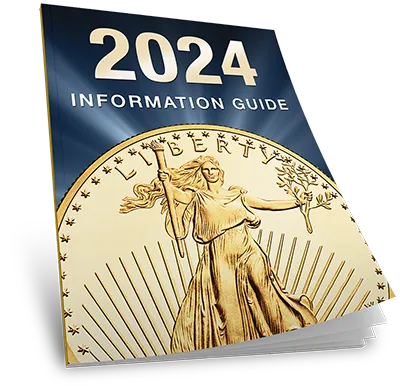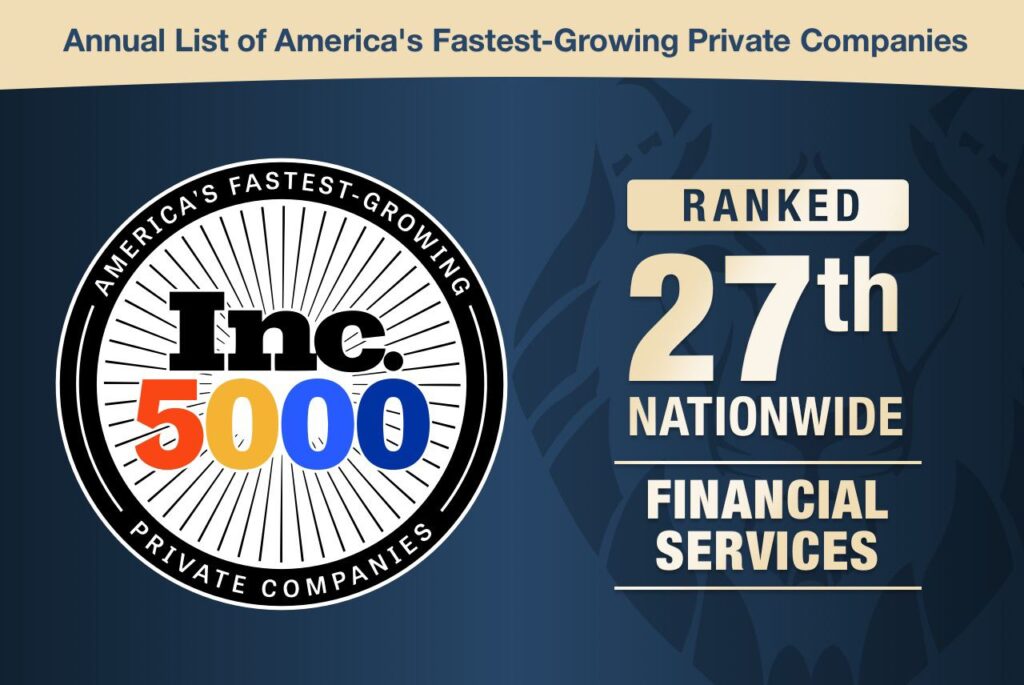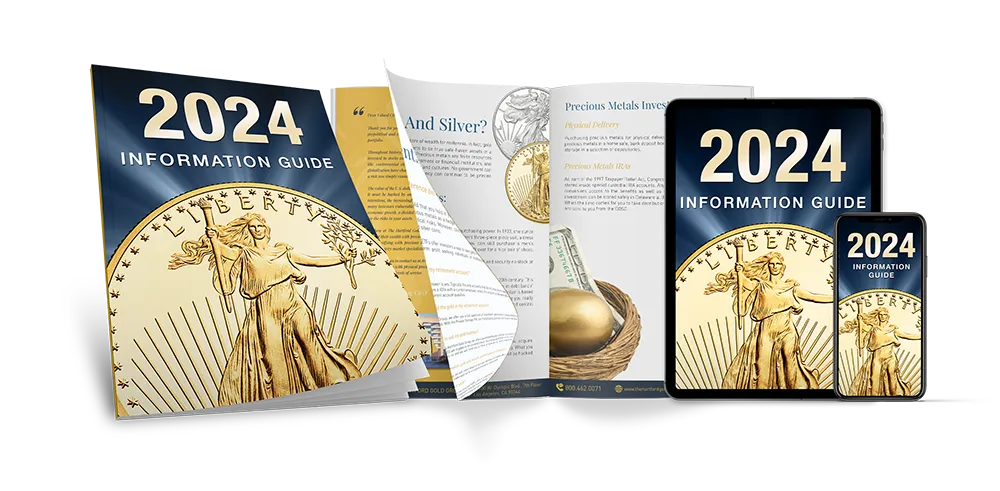When a bank fails, your hard-earned dollars are suddenly at risk.
Even when a bank goes down, there are systems in place to protect some of your money — however, there’s no guarantee that you’ll avoid losing a penny during a financial crisis.
The recent failures highlight that maybe, just maybe, the traditional banking system isn’t the infallible fortress we were led to believe. If you’re searching for greater security in this economic climate, options like acquiring physical gold may be a smart move.
What Happens When a Bank Fails?
A bank failure simply means the institution can’t make good on its financial promises. Think of it like this: Banks use your deposits to make loans and other financial plays. If too many of those loans go bad, or if a sudden panic causes mass withdrawals, the bank might not have enough cash to give everyone their money back. That’s when things might not be so pretty.
Thankfully, the federal government stepped in during the Great Depression to create the Federal Deposit Insurance Corporation (FDIC), which steps in when a bank fails.
Their primary job is to protect depositors like you. Most banks you see are FDIC-insured, and that protection is crucial. Here’s how it usually goes:
- Step 1: The FDIC Takes Over: The FDIC either finds a healthy bank to buy the failed bank or steps in to manage the mess.
- Step 2: Two Possible Outcomes: If a buyer is found, your account is seamlessly shifted to the new bank, and your money should be accessible with minimal disruption. In the less common scenario where the FDIC has to manage things, they’ll work to repay depositors using the failed bank’s assets and their own insurance funds.
Even if you have a significant amount of money at a failed bank, the FDIC guarantees your money up to a limit of $250,000 per depositor, per bank, per ownership category. Anything over that limit could potentially be lost — a scary prospect.
What Happens to Your Money If Your Bank Fails?
If your bank is FDIC-insured, the first $250,000 of your deposits is generally safe. The FDIC has a stellar track record, and it’s rare for them to fail at getting insured deposits back to people quickly.
In the event your bank implodes, this $250,000 safety net should cover the essentials like your checking accounts, savings accounts, and even certificates of deposit, as long as they’re all within the “single account” ownership category at your bank.
Even the recent high-profile bank failures likely won’t wipe out all your money above the FDIC insurance coverage limit. If the FDIC can’t find a buyer, they’ll typically liquidate the failed bank’s assets (those loans, etc.) to pay back uninsured deposits.
Don’t expect to get all your uninsured money back instantly as you would with your first $250,000, but you should recoup a significant chunk over time.
Timeframe of Return
The FDIC aims to get you access to your insured bank deposits within two business days. This means your bills, direct deposits, and debit card transactions shouldn’t experience major issues.
In fact, unless you have a lot of money over the limit, you might not even notice your bank failed if the FDIC finds a buyer quickly (think of how smoothly JPMorgan Chase took over Washington Mutual).
Keep in mind that the $250,000 FDIC limit is per depositor, per bank, per ownership category. This means you could potentially have much more than $250,000 protected.
Let’s say you have a single account and a joint account — those are separate categories, so you’d get $250,000 covered on each. You can play with the FDIC’s online estimator to see how your accounts add up.
A Note on Credit Unions
You might be a credit union member instead, but don’t panic. Credit unions have their own version of the FDIC called the National Credit Union Administration (NCUA). It functions in much the same way.
Regarding your hard-earned money, it’s never wise to keep all your eggs in one basket. That’s why so many experts recommend diversifying your assets. We’ll talk more about this later, so be sure to stick around to find out how you can protect your money.
Why Do Banks Fail?
At their core, banks are businesses, and businesses take risks to make money. Unfortunately, sometimes, those risks blow up in their faces. Banks profit by lending out your deposited money — that funds things like home mortgages, car loans, and business loans.
They also invest in various financial markets. It’s a calculated gamble designed to bring higher returns than they pay you on your savings account.
But here’s the problem: Some loans don’t get repaid. During economic downturns, borrowers struggle, businesses fail, and the bank can be left holding the bag. And those investments they make?
Turns out the stock market doesn’t always go up. If enough loans sour or their investments tank, the bank might not have enough cash to cover what they owe depositors. This is when bad turns to worse.
How Do Bank Failures Start?
Scenarios like these start out with your neighbor or friend telling you that your bank is in trouble. Word gets around, and eventually, you and many other account holders panic and rush to withdraw your money.
That’s a bank run, and even somewhat healthy banks can crumble when everyone demands their money at once.
The most bank runs occurred during the Great Depression. These days, with deposit insurance and stricter regulations, they’re much less common — but as Silicon Valley Bank proved, they’re not impossible. Even without a full-blown run, a bank that’s lost too much money on bad bets can still go insolvent.
Runs Aren’t Just for Traditional Banks
The same principles apply to, for example, money market accounts and annuities offered by insurance companies.
They’re all taking calculated risks with your money to get you higher yields. When the economy turns stormy, even seemingly safe havens might take on water.
So, what causes a bank (or a financial institution) to fail? There’s no one-size-fits-all answer. A bad loan to a giant corporation, risky investments in a crashing market, a sudden rise in interest rates, fraud, or, yes, even a modern-day bank run — any of these factors could push a bank over the edge.
If too many things go wrong, you might wake up one day to find your bank account frozen and the FDIC scrambling to pick up the pieces.
How To Protect Yourself From a Bank Failure
Let’s be proactive. While the FDIC provides a safety net, relying solely on it comes with limitations. Here’s where you take the reins and level up your financial security:
Step 1: Double-Check Your Coverage
Don’t assume your bank is an FDIC-insured institution — verify it. Head to the FDIC’s website and use their BankFind Suite. Look for that familiar FDIC logo on your bank’s marketing, too. If you don’t see it, run, don’t walk, to a different institution.
Step 2: Don’t Put All Your Eggs in One FDIC Basket
It’s important to understand that the $250,000 FDIC limit is per bank, not across all your accounts. If you’ve saved a sizable amount, consider spreading it across multiple FDIC-insured banks. Think about establishing personal finance accounts across different banks to maximize that federal protection.
It might be a bit of extra paperwork initially, but it could be the difference between sleeping soundly at night and nail-biting anxiety when banks start wobbling.
Step 3: Stay in the Know
Don’t be caught off-guard by the next bank collapse. It pays to be informed about the financial world, especially during tough economic times. It doesn’t mean obsessively checking news headlines but setting aside a few minutes a week to scan trusted financial websites or listen to reputable podcasts.
Watch out for red flags like banks offering unusually high interest rates on deposit accounts — often, that’s a sign they’re desperate for cash, and that spells risk.
Pay attention to what regulators and financial analysts are saying about the overall health of the banking system. If you start seeing words like “trouble,” “instability,” or “concern” popping up frequently, that’s a cue to double-check how your money is distributed. Being aware gives you the power to act proactively instead of scrambling in a crisis.
What Is an Alternative to Traditional Banking?
Let’s talk about building a fortress for your wealth, not a house of cards. Traditional banking relies on a promise that your “paper money” will be there for you. But what about when the system behind that paper falters, and your bank closes?
What if inflation eats away at your savings, or the stock market, on which so many retirement accounts depend, takes a wild tumble?
This is where tangible assets like physical gold offer a compelling alternative. Gold has proven its value throughout tumultuous centuries. It’s a reliable hedge against inflation and economic instability, a refuge during times when paper-based assets lose their shine.
The Gold IRA Option
A Gold IRA allows you to own physical gold — coins or bars — within the structure of a retirement account. You get the traditional tax advantages of an IRA but with the added security of an asset that history has shown holds its value during crises.
Why a Gold IRA?
Even the most experienced investors can’t predict the market’s twists and turns. One minute, stocks are soaring, and the next, your retirement account balance is dipping like a rollercoaster.
Gold, on the other hand, provides a measure of steadiness, and its value tends to rise when those paper assets get shaky. It brings essential diversification to your portfolio, shielding you from the full force of market storms.
At American Hartford Gold, we specialize in helping Americans protect their financial futures with Gold IRAs. And setting one up is easier than you might think.
You typically don’t even need to liquidate your existing retirement accounts. There are options for tax-free rollovers that can shift a portion of your holdings into physical gold, safeguarding that part of your wealth.
The American Hartford Gold (AHG) Difference
AHG understands the importance of trust when it comes to your hard-earned savings. Our team guides you through every step of the process, from setting up your IRA to choosing the right precious metals. We’re committed to education and informed decision-making, not pushy sales tactics.
In today’s uncertain world, it’s time to rethink what a secure retirement looks like. A Gold IRA with AHG offers a unique combination of stability and growth potential, a way to weather economic storms and provide for your family’s future. Contact us today to discuss your financial future.
Sources:
FDIC: Your Insured Deposits | FDIC
FDIC: Failed Bank Information for Silicon Valley Bank, Santa Clara, CA | FDIC






